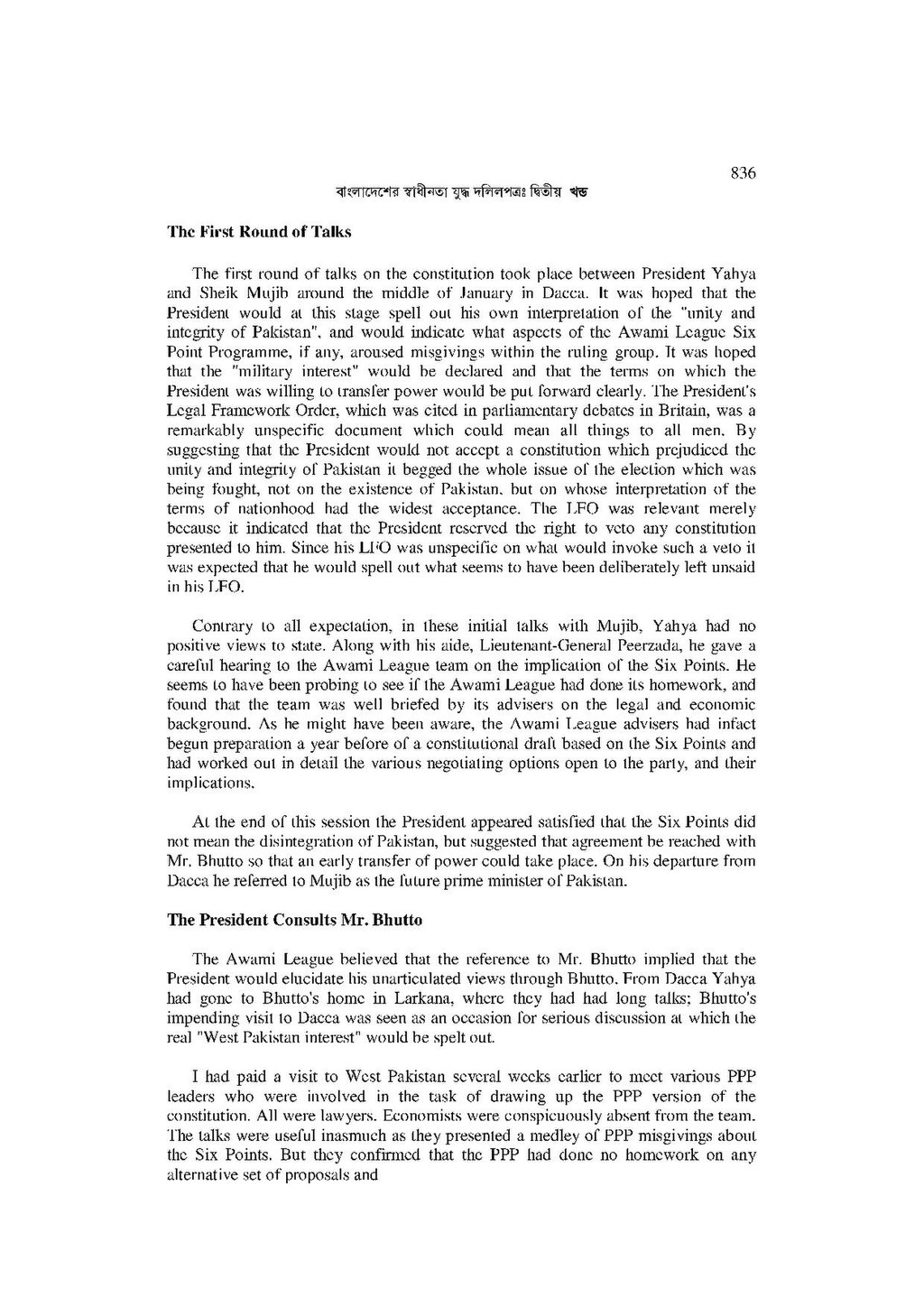The First Round of Talks
The first round of talks on the constitution took place between President Yahya and Sheik Mujib around the middle of January in Dacca. It was hoped that the President would at this stage spell out his own interpretation of the “unity and integrity of Pakistan”, and would indicate what aspects of the Awami League Six Point Programme, if any, aroused misgivings within the ruling group. It was hoped that the “military interest” would be declared and that the terms on which the President was willing to transfer power would be put forward clearly. The President's Legal Framework Order, which was cited in parliamentary debates in Britain, was a remarkably unspecific document which could mean all things to all men. By suggesting that the President would not accept a constitution which prejudiced the unity and integrity of Pakistan it begged the whole issue of the election which was being fought, not on the existence of Pakistan, but on whose interpretation of the terms of nationhood had the widest acceptance. The LFO was relevant merely because it indicated that the President reserved the right to veto any constitution presented to him. Since his LFO was unspecific on what would invoke such a veto it was expected that he would spell out what seems to have been deliberately left unsaid in his LFO.
Contrary to all expectation, in these initial talks with Mujib, Yahya had no positive views to state. Along with his aide, Lieutenant-General Peerzada, he gave a careful hearing to the Awami League team on the implication of the Six Points. He seems to have been probing to see if the Awami League had done its homework, and found that the team was well briefed by its advisers on the legal and economic background. As he might have been aware, the Awami League advisers had infact begun preparation a year before of a constitutional draft based on the Six Points and had worked out in detail the various negotiating options open to the party, and their implications.
At the end of this session the President appeared satisfied that the Six Points did not mean the disintegration of Pakistan, but suggested that agreement be reached with Mr. Bhutto so that an early transfer of power could take place. On his departure from Dacca he referred to Mujib as the future prime minister of Pakistan.
The President Consults Mr. Bhutto
The Awami League believed that the reference to Mr. Bhutto implied that the President would elucidate his unarticulated views through Bhutto. From Dacca Yahya had gone to Bhutto's home in Larkana, where they had had long talks; Bhutto's impending visit to Dacca was seen as an occasion for serious discussion at which the real “West Pakistan interest” would be spelt out.
I had paid a visit to West Pakistan several weeks earlier to meet various PPP leaders who were involved in the task of drawing up the PPP version of the constitution, All were lawyers. Economists were conspicuously absent from the team. The talks were useful inasmuch as they presented a medley of PPP misgivings about the Six Points. But they confirmed that the PPP had done no homework on any alternative set of proposals and
